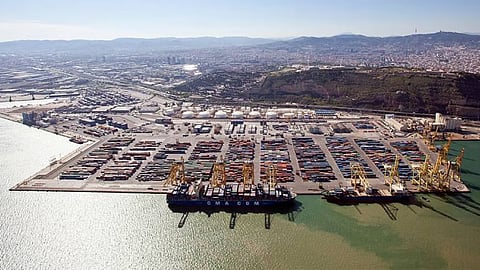

BlackRock and MSC's bid for CK Hutchison's terminal at Barcelona port faces a hurdle with EU antitrust regulators set to investigate the Spanish deal, a person with direct knowledge of the matter said on Thursday.
The deal is separate from and predates BlackRock and MSC's bid for most of CK Hutchison's global port operations, Swiss-based MSC said.
Hong Kong tycoon Li Ka-shing’s CK Hutchison wants to sell its 80 per cent holding in the $22.8 billion ports business, which encompasses 43 ports in 23 countries, a politically sensitive deal that has been caught up in China-U.S. tensions.
The likely full-scale investigation by the European Commission, previously unreported, could see regulators demand concessions from BlackRock and MSC in return for clearing the Spanish deal.
The commission declined to comment. BlackRock did not immediately respond to several emailed requests for comment.
CK Hutchison has interests in ports across Europe, including in Belgium, Poland and the Netherlands. It was not immediately clear if those other European parts of the global acquisition could also eventually come under scrutiny. The non-EU portions of the deal fall outside the EU’s review jurisdiction.
The overall wider package, which includes two ports along the strategically important Panama Canal, has become highly politicised between Washington and Beijing.
The Spanish deal would see Terminal Investment Holding (TIL), a unit of Switzerland-based MSC Mediterranean Shipping Company, and BlackRock acquire joint control of Hutchison’s terminal at Barcelona port.
The terminal can serve multiple mega-ships simultaneously and has an eight-track rail facility - making it the EU’s largest rail terminal on the Mediterranean Sea - that connects the port with traffic to and from Southern Europe.
TIL already operates a terminal at the Spanish port of Valencia.
The European Commission, which acts as the EU competition enforcer, is set to open a full-scale investigation after its preliminary review of the deal ends on December 10, the person said.
Full-scale EU investigations typically last around four months or longer and can lead to firms offering concessions including divestments to address competition concerns and secure regulatory approval.
(Reporting by Foo Yun Chee; Editing by Adam Jourdan and Joe Bavier)
